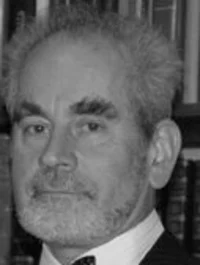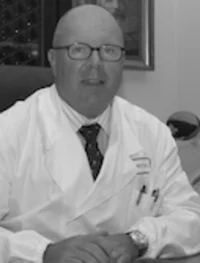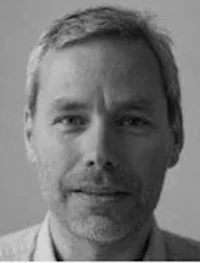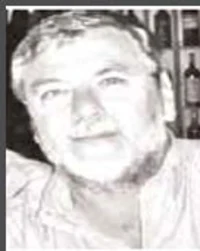Professor Michael Reade, Australian Defence Force Professor of Military Medicine and Surgery, University of Queensland and ADF Joint Health Command, is a practising specialist intensive care physician and clinician scientist in the Australian Defence Force (ADF), seconded by Joint Health Command to the University of Queensland to lead a programme of research relevant to military trauma medicine and surgery and to guide the implementation of modern trauma care into ADF practice.
We asked our 7 questions:
1. What are your key areas of interest and research?
As the only Australian Defence Force full-time clinical academic focussed on trauma, my research interests are those most relevant to the care of severely wounded military personnel. In collaboration with the Australian Red Cross Blood Service, I’m leading a program of preclinical and clinical trials research investigating the utility of cryopreserved platelets, which if successful would extend the shelf-life of platelets from five days to two years. I’m also involved in multicentre clinical trials of the age of transfused red blood cells and the prehospital administration of tranexamic acid. As part of a Centre of Research Excellence grant, we’re exploring the feasibility of other treatments for exsanguinating haemorrhage, including fibrinogen concentrate and cold-stored platelets. I also have an interest in the management of acute cognitive impairment in critical illness, with a large trial currently underway testing an early light sedation strategy that includes dexmedetomidine and avoids benzodiazepines. Finally, we’ve identified several trauma systems design questions based on experience from deployed hospitals in Iraq and Afghanistan, and we’re hoping to develop these into funded research projects.
2. What are the major challenges in your field?
The most important major challenge has been overcome: that is, to treat combat casualty care as an academic discipline, with equipment, practices and systems subjected to objective scrutiny. The opportunities for technical improvements in this context are many: the provision of optimal resuscitation fluids remote from large hospitals, better imaging devices that can be deployed to field hospitals, reduction or elimination of the need for live tissue training through use of more realistic simulation equipment, the utility of biomarkers to identify devitalised tissue and to guide treatment of infectious disease, and systems improvements to guarantee the best possible care from the point of wounding to definitive care. In addition, the field of “regenerative medicine” has developed rapidly with the impetus to improve long-term outcomes after traumatic amputation and other severe wounds.
3. What is your top management tip?
Doctors have a mistaken tendency to equate technical expertise with leadership. Leadership is influencing people to act in the manner required; management involves designing a sensible plan for people to follow. Organisations can be managed, but leadership is an interpersonal activity. In short – leadership doesn’t involve sitting at a desk designing plans or exercising technical skill; leaders harness the work of other people to actually do the job.
4. What would you single out as a career highlight?
Commanding the Australian Specialist Health Group at the NATO Role 3 hospital in Kandahar in 2013. As well as doing the technical job of an intensivist, helping a group of highly proficient individuals to stay together as a mutually supporting team in a demanding, tiring environment under enormous scrutiny was a rewarding challenge. I felt like I’d been running at 120% capacity for months, and it took a while to throttle back to 100% in routine clinical and academic practice.
5. If you had not chosen this career path you would have become a…?
Engineer. Another good combination of technical expertise, team management and persuasive leadership.
6. What are your personal interests outside of work?
Keeping an 80-year-old wooden “Queenslander” house still standing. I’ve learnt plastering, roofing, plumbing, basic electrics and carpentry … mostly from YouTube!
7. Your favourite quote?
“If you can keep your head when all about you are losing theirs and blaming it on you …” – the portion of Kipling’s “If” most relevant to an intensivist.
Michael Reade trained in clinical anaesthetics and intensive care medicine at Royal North Shore Hospital (Sydney), the Austin Hospital (Melbourne), the John Radcliffe Hospital (Oxford, UK) and the University of Pittsburgh Medical Center (USA). His Oxford DPhil examined the molecular pathogenesis of septic shock, while his postdoctoral research fellowship focused on clinical trials and the analysis of large observational datasets. In addition to his University of Queensland/ ADF position he is Senior Staff Specialist Intensivist, Royal Brisbane and Women’s Hospital, Adjunct Professor, Department of Epidemiology and Preventative Medicine, Monash University and Honorary Principal Fellow, Department of Surgery, University of Melbourne.
Reade was commissioned as a General Service Officer in the Australian Army in 1990, and has served in Bosnia and Kosovo (on attachment to the British Airborne Brigade) and East Timor and the Solomon Islands. In 2009 he was the clinical director of the NATO hospital, Tarin Kot, Afghanistan, and in 2013 commanded the Australian Specialist Health Group at the NATO hospital, Kandahar, Afghanistan. From January 2015 he will be the Clinical Director of the Australian Regular Army’s only field hospital.
Reade’s research focuses on fluid resuscitation and coagulopathy in trauma, the effects of blood transfusion in critical illness (including large clinical trials of cryopreserved blood products and tranexamic acid), the management of acute cognitive dysfunction, and the design of trauma systems. He holds or contributes to research grants totalling >A$12M, and he has published over 100 peer-reviewed papers and delivered more than 140 lectures at national and international conferences.
Further reading
Reade M (2013) Mobile critical care. ICU Management, 13(4): 32-5.
Reade M (2014) Bleeding, coagulopathy and blood products in major trauma. ICU Management, 14(3): 29-31.











